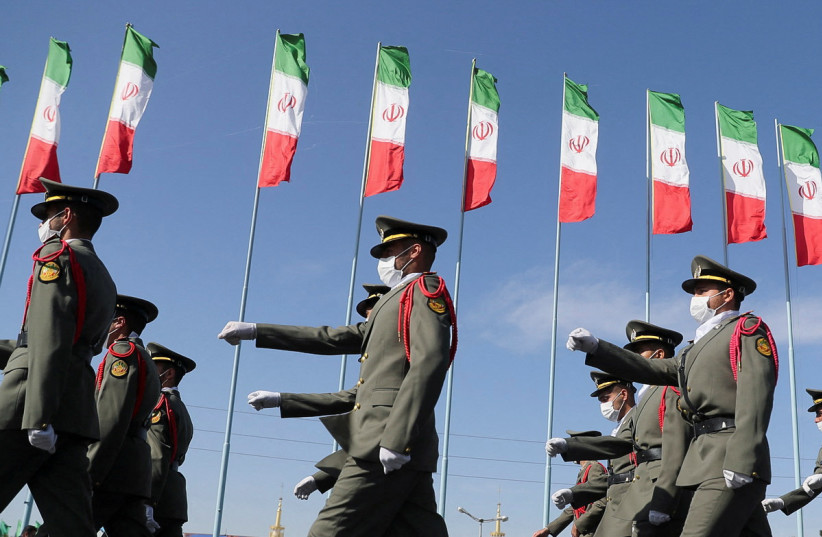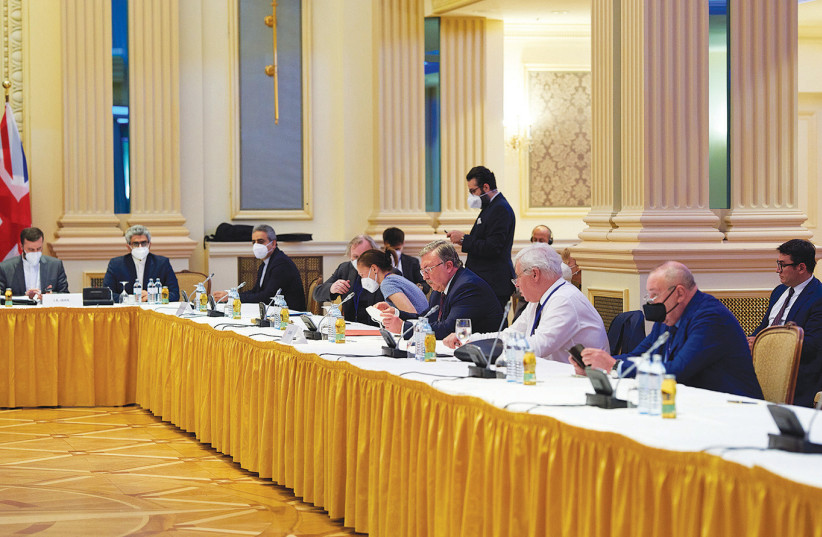Jerusalem may now need to deal with the consequences of helping prevent a return to the nuclear deal.

In January 2021, the ayatollahs were salivating over the expectation that the Biden administration would rejoin the 2015 Joint Comprehensive Plan of Action Iran nuclear deal within months, on their terms.
In this scenario, they would have wiped out any leverage or gains by Israel, moderate Sunni countries and opponents of Iran in the US from the Trump years.
But none of this went as planned.
The Biden administration has been a tougher negotiator than expected, significant time has passed, and the trade wars between the West and Russia and China have left Iran to rethink whether any nuclear deal is in its interest.
True, during the negotiations Iran achieved most of its main objectives, with the US consenting to allow the Islamic Republic to maintain hundreds of new advanced centrifuges in storage instead of having to destroy them.

In addition, the ayatollahs have succeeded in sidelining the Biden administration’s hope to improve the JCPOA by filling some of the holes related to its expiration in 2025 and 2030, Iran’s ballistic missile program, inadequate International Atomic Energy Agency supervision of military Iranian nuclear facilities, and Iran’s aggressive behavior in the region.
Despite these achievements, Iran is now holding up consummating the nuclear deal, allegedly because the US has not agreed to delete the Islamic Revolutionary Guard Corps from its Foreign Terrorist Organizations list.
One possible reason why Iran would hold up the deal over this symbolic technicality could be because it never wanted a deal in the first place, and is simply trying to buy time for clandestine nuclear weapons activities.
Another possibility is that Iran does intend to eventually conclude a deal, but would still like to buy some time for clandestine nuclear activities, which could help it at a later potential breakout date.
A third possibility is that Iran wanted a deal in January 2021 based on the balance of world power at the time.
However, it might now view things differently.
In January 2021 Iran faced four years of the Biden administration and potentially even eight years in which a new nuclear deal could enable its economy to thrive.
There also did not seem to be a scenario in which Iran’s economy could thrive without Western support.
Yet in May 2022 the Biden administration is looking weak, with many predicting that Biden will only be in office for another two-and-a-half years. And trade wars between the West on one side and Russia and China on the other have split the international economic regime, and created possibilities for Iran to try to rebuild its economy without Western support.
Finally, Iran’s bitter experience in which the JCPOA only provided much delayed economic benefits has made Iran question whether two-and-a-half years would be long enough for it to actually obtain any substantial economic benefits from a new deal.
Even such Iran hawks as former National Security Council chief Yaakov Amidror said in late 2016 that they were surprised how little foreign investment had returned to Tehran.
It turned out that even without global sanctions; many foreign investors were concerned about systematic corruption in Iran as well as the possibility that any investments could be messed up a couple of years down the line, should a more anti-Iran Republican president take over in 2024.
Israel has said since January 2021 that a return to the JCPOA would be a major mistake.
Jerusalem might now need to deal with the consequences of helping prevent a return to the nuclear deal, such as having to decide how to push Iran away from the nuclear threshold that it has been sitting on for approximately a year.
Content retrieved from: https://www.jpost.com/opinion/article-705969.